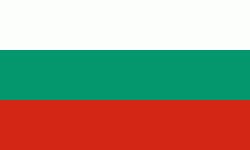Burgas (Бургас, ), sometimes transliterated as Bourgas, is the second largest city on the Bulgarian Black Sea Coast in the region of Northern Thrace and the fourth-largest in Bulgaria after Sofia, Plovdiv, and Varna, with a population of 202,694 inhabitants, while 277,922 live in its urban area. It is the capital of Burgas Province and an important industrial, transport, cultural and tourist centre.
The city is surrounded by the Burgas Lakes and located at the westernmost point of the Black Sea, at the large Burgas Bay. LUKOIL Neftochim Burgas is the largest oil refinery in southeastern Europe and the largest industrial enterprise. The Port of Burgas is the largest port in Bulgaria, and Burgas Airport is the second most important in the country. Burgas is the centre of the Bulgarian fishing and fish processing industry.
A similar literal composition have the cities Burgos in Spain and numerous cities containing the Germanic burg "city" such as Hamburg. It is widely considered, including by the city's official website, that the name of the city is derived from the Latin word "burgus" as meaning a "tower", after a local ancient Roman travel post, which used to be in the area of today's Burgas Port. 15 centuries later, the settlement was mentioned by the Byzantine poet Manuel Phil as "Pyrgos" (Greek: Πύργος), a word identical in meaning with the Greek word for tower. The name passed to Bulgarian through the Turkish Burgaz. There are several alternative explanations for the name's origin. By one of them, the city's name comes from Gothic name "baurgs" as meaning "signified consolidated walled villages". According to Bulgarian prof. Kiril Vlahov, the name of the city comes from the Thracian word "pyurg" as meaning "fortification of wooden beams". It is also suggested that the name ultimately comes from the name of khan Burtaz (683-633 BC).



















